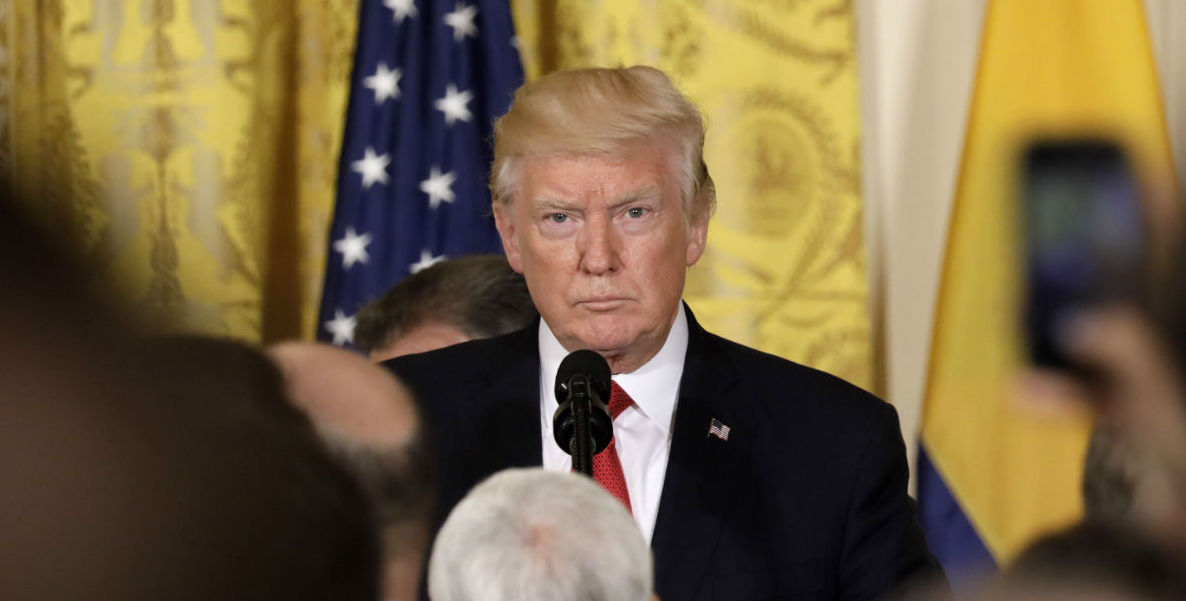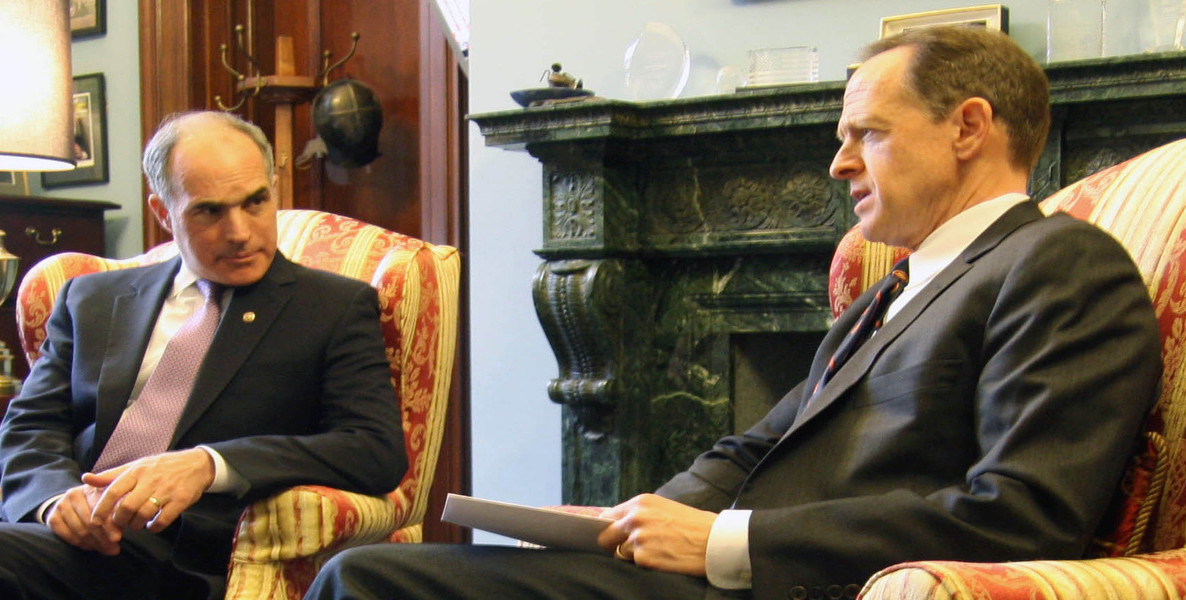“Please don’t,” Michael Smerconish begged me. It was last spring, and I had remarked to him that I wanted to write about him because, I said, he’s the last reasonable man in media. Through all the shouting and talking points, his voice—on his weekend CNN show, on his satellite radio program, and in his Sunday Inquirer column—has consistently come from the common sense center, an increasingly lonely place in these days where news consumers seem to pick outlets that confirm, rather than inform, their political views.
Be Part of the Solution
Become a Citizen member.“That will be the kiss of death for me,” he said. Wait, being called reasonable is career threatening in today’s media universe? Need we look any further for confirmation that the apocalypse is upon us?
I called Smerconish last week, after viewing on his YouTube channel a version of the speech he’s been giving across the country. He’s calling it “Divided We Stand” and it’s the most cogent big picture explanation yet as to how we got where we are. He expertly traces the rise of Trump with the rise of resentment politics fueled by talk radio, and puts into terrifying context the divide so many of us are wringing our hands over.
The video is, as he says, a big ask: 45 minutes of a bald middle-aged guy looking into a camera and talking, but nearly 10,000 people have watched it, driving demand for more such talks to large groups throughout the nation.
I’m outing you, I told him. You are reasonable; embrace your reasonableness. So, herewith, a quick Q & A with what passes for a media radical circa 2017. But don’t take my word for it; check out the speech below, too.
LP: So tell me about this speech. You’ve been crisscrossing the country, giving it?

Smerconish: I probably give it two to three times a month. I was in Atlanta last week. In two weeks, I’ll be speaking in San Diego and Las Vegas. I’ve spoken to steel manufacturers in Atlanta and hospital executives in Michigan. I’ve been giving a version of this talk for a couple of years, but I’m always updating it and making it tighter.
LP: You trace the rise of Trump as the natural extension of the rise of conservative talk radio, both playing off white male resentment.
Smerconish: It was three decades ago that he first dipped his toe in the political water. And it was three decades ago that talk radio started to take over politics. Everything changed. It’s the appropriate timetable, because a big part of the story behind Trump is about media influence. This is an argument I’ve been making for a while. Back during the primaries, a year and a half ago, I wrote a piece for CNN.com with University of Pennsylvania Professor Brian Rosenwald that lays it all out.
LP: So why do you cringe when someone like me says you’re “reasonable”?
![]()
Smerconish: Yeah, you’re not doing me any favors. Because passion sells. You don’t need the largest audience, you just need the most consistent and most hardcore audience. Thanks to the influence of closed primaries and a lot of other factors, it’s not just politicians that play to the base, so does media.
LP: So it’s harder for your—forgive me—reasonable centrist point of view to find a space?
Smerconish: Five years ago in Chicago, I gave a speech to the National Association of Broadcasters and I said our industry needs to change. We’re hurting the country by fueling the divide. And, by the way, your audience is dying anyway. A lot of people came up to me and said, ‘Thank you, that was an important message’ but nothing’s changed. Media outlets can’t let go of the mother’s milk of the ideological extremes. Hopefully, I’m proving you can be successful doing something different. I have a CNN show—granted, it’s not on in primetime—and a good sized audience on Sirius.
LP: When I was growing up, you had Sen. Scoop Jackson on the D side and Sen. Warren Rudman on the R side, and there wasn’t much daylight between them. That seems quaint now.
Smerconish: I say in the speech that, in the ‘80s, 60 percent of those in the U.S. Senate were moderates. You needed to pay your dues and establish seniority and be a statesman. Now, you just say something incendiary—whether a Democrat or Republican—and you can instantly become a fundraising magnet. I entered the talk radio business right when this was starting to happen, which was the same time Donald Trump first started going to New Hampshire and talking about running for president.
LP: I like that you criticize anyone who contributes to the divide. You’ve been critical of Trump, but not just Trump.
Smerconish: Yeah, let’s not let the Left off the hook. What Kathy Griffin did was despicable and she deserved to get fired. Stephen Colbert’s blow job joke was over the line.
It comes down to one word: Engagement. Get involved. If politicians would hear from reasonable voices instead of those on the loud fringes, we’d get change.
LP: Speaking of the divide, you point out that it’s not just gerrymandering that has contributed to it. We all bear some responsibility.
![]()
Smerconish: In the speech, I show a map not of congressional seats but of counties—more than 3,000 of them—and the divide is even more severe there. Politicians didn’t redraw county lines. Something else is going on. We’re self-gerrymandering, choosing to be with the like-minded.
LP: So you do an excellent job of explaining how we got here, but what do we do now? How do we fix this mess?
Smerconish: That’s funny, because I’m adding that to the speech now. There are ideas out there—open primaries, campaign reform, promoting civility. But it comes down to one word: Engagement. Get involved. If politicians would hear from reasonable voices instead of those on the loud fringes, we’d get change.
Header Photo: Gage Skidmore for Flickr






